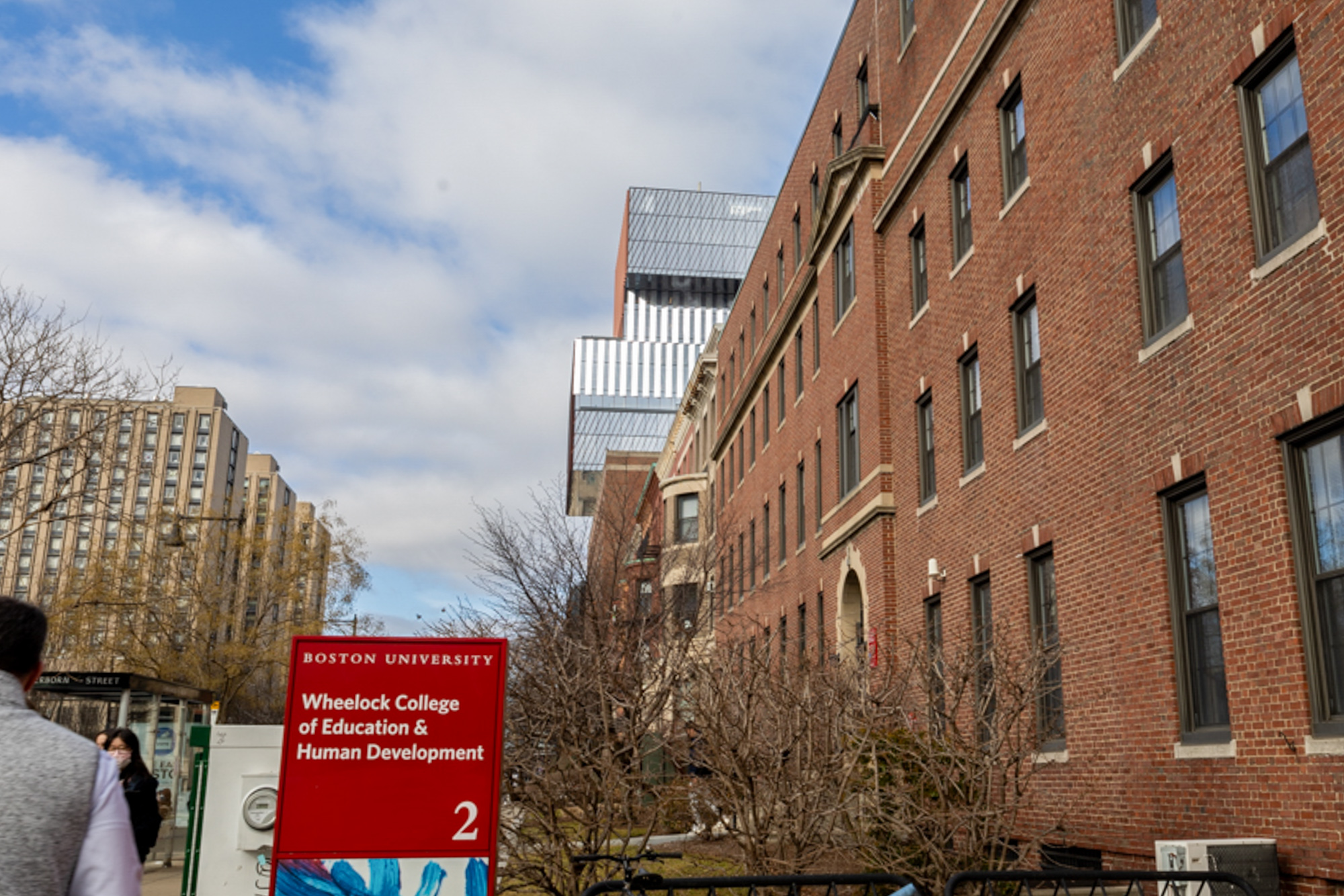With childhood literacy rates in jeopardy, there’s a point where the education of future educators becomes a little more complicated.
The Massachusetts state legislature advanced a bill Wednesday requiring elementary schools to teach evidence-based reading curriculum. The legislation follows a four-part Boston Globe series detailing a reading crisis among Massachusetts children: more than half of third graders demonstrated low reading proficiency on last year’s standardized literacy exam.
To address this issue, Boston University Wheelock College of Education and Human Development aims to enhance its instruction to fit evolving literacy needs in schools. This includes preparing education students to teach children with varying literacy levels, said Katherine Frankel, associate professor of literacy education and chair of the language and literacy education department.

“We’ll always be looking for ways that our programs can be more responsive to what we know our students are going to encounter when they go out into the schools and districts and in the current moment,” Frankel said.
David Chard, dean of Wheelock, discussed these literacy issues on Feb. 1 in an episode of his webinar series, “Conversations with the Dean: The Science of Reading: How the National Movement is Playing out in Teacher Prep.” He emphasized the importance of early reading development and noted the “connection between literacy and the ability to thrive in our society.”
Citing Wheelock’s mission statement, Chard said the college is “dedicated to transforming systems, in this case, public education systems, ‘that impact learning and human development for a thriving, sustainable, and just future in Boston and beyond.’”
“[Literacy and reading education] is a particularly personal topic for me,” Chard said during the webinar. “I’ve spent decades doing both research and technical assistance in this area … and still we struggle to implement strong reading instruction for all children.”
Nancy Nelson, assistant professor of teaching and learning at Boston University, said in the webinar that the next step is to adjust Wheelock’s literacy programs to create more evidence- and research-based approaches to apply in the classroom. Research-based evidence for creating literacy practices is fairly new, only having been implemented within the last 20 years of education research.
Frankel cited measures taken by her colleagues in elementary literacy education, who revised the curriculum of an Introduction to Literacy course to better incorporate the current state of reading education.
“This is just a chance for us to come together to think about modifications or enhancements we want to make moving forward,” Frankel said. “That’s the work of a college of education at a university like BU, to always be working together, collaborating, figuring out what we’re doing well, what we wanted to do differently and always reiterating on that process.”
Wheelock’s Reading Education Masters program will also undergo some revision in response to Massachusetts’ childhood literacy crisis, Frankel said.
To better prepare future educators to teach reading instruction, the program’s adjustment will support “early literacy and [a] renewed interest on foundational skills,” as well as “other really key parts of literacy,” such as how to culturally sustain literacy instruction.
Frankel said the program is changing to emphasize other aspects of literacy by adding topics like cultural perspective and leadership.
Claire Foley, associate director of City Connects at Boston College — a program that provides support at schools to close the socioeconomic divide under-resourced neighborhoods face — emphasized similar efforts to support literacy in the Boston community.
“In my years of working with City Connect, I have seen over and over the dedication of individual community partners and also a willingness to come together and collaborate,” Foley said.
With parents and state policymakers paying more attention and taking steps to address the issue of early literacy development, the potential for more collaboration and new discoveries arise.
“We’re always learning new things,” Frankel said of education research. “We’re always thinking about things differently.”
Eliza Lamont contributed to the reporting of this article.
























































































































